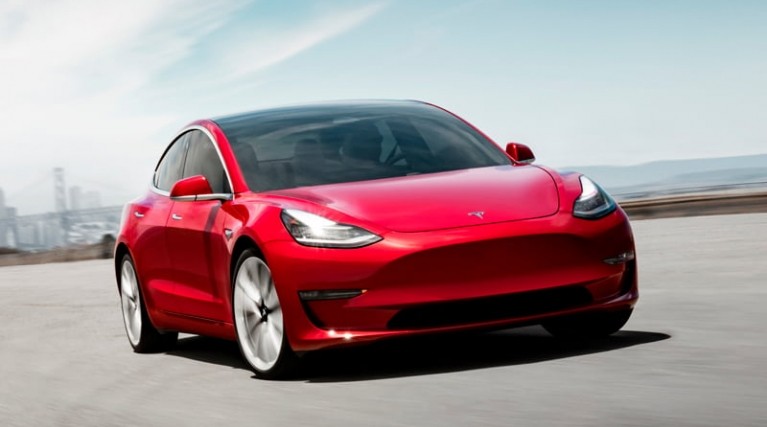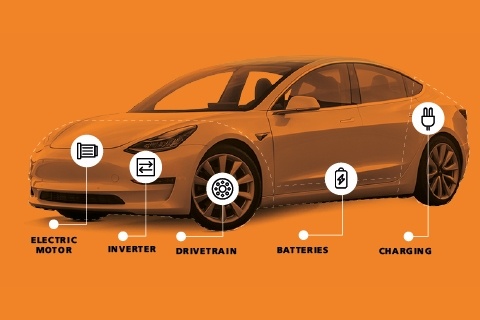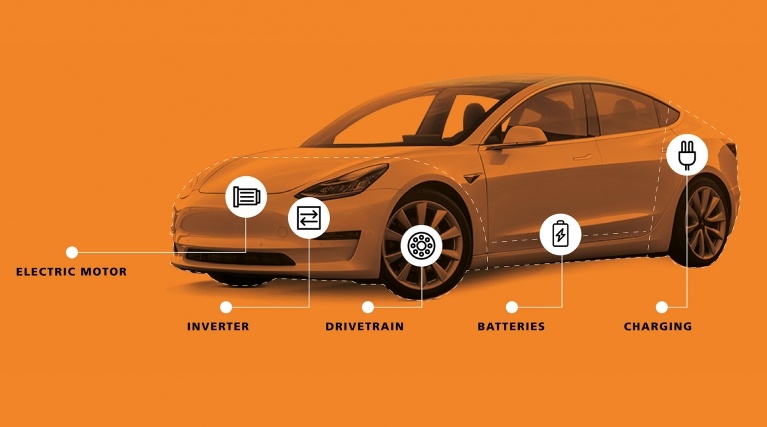Benefits of electric cars on the environment
Research has shown that electric cars are better for the environment. They emit fewer greenhouse gases and air pollutants than petrol or diesel cars. And this takes into account their production and electricity generation to keep them running.
Here we answer some of the most common questions around EVs and their impact on the environment.
If you're already set on an electric car, check out our leasing deals - best cars and great prices.

Are electric cars better for the environment?
The major benefit of electric cars is the contribution that they can make towards improving air quality in towns and cities. With no tailpipe, pure electric cars produce no carbon dioxide or other harmful emissions when driving. This reduces air pollution considerably.
Put simply, electric cars give us cleaner streets making our towns and cities a better place to be for pedestrians and cyclists. In over a year, just one electric car on the roads can save an average 1.5 million grams of CO2. That’s the equivalent of four return flights from London to Barcelona.
Electric cars and UK's Net Zero target
According to the Mayor of London, road transport accounts for around half of the capital's air pollution. It’s no wonder that the UK government and local councils want to accelerate the number of electric cars on the roads. The UK government has set a target that the sale of petrol and diesel cars will be banned by 2030. The government is also looking to reduce net carbon emissions to zero by 2050, and electric cars will play a big role in that.
What's more, EVs can also help with noise pollution, especially in cities where speeds are generally low. As electric cars are far quieter than conventional vehicles, driving electric creates a more peaceful environment for us all.
Compare an electric vs petrol car
Research by the International Energy Agency (IEA) shows that electric vehicles come with a significantly lower total carbon output per vehicle lifetime than a typical Internal Combustion Engine (ICE) powered vehicle. As electricity generation continues to get cleaner, this position can only improve over time.
How does electric car production affect the environment?
Making electric cars does use a lot of energy. Even after taking battery manufacture into account, electric cars are still a greener option. This is because of the reduction in emissions created over the car’s lifetime
The emissions created during the production of an electric car tend to be higher than a conventional car. This is due to the manufacture of lithium ion batteries which are an essential part of an electric car. More than a third of the lifetime CO2 emissions from an electric car come from the energy used to make the car itself. As technology advances, this is changing for the better.
Reusing and recycling batteries is also a growing market. Research into the use of second-hand batteries is looking at ways to reuse batteries in new technologies such as electricity storage. One day we could all have batteries in our homes being used to store our own energy. Opportunities like this will reduce the lifetime environmental impact of battery manufacture.
What about the electricity required to fuel an electric car?
Research by the European Energy Agency found that, even with electricity generation, the carbon emissions of an electric car are around 17 – 30% lower than driving a petrol or diesel car. The emissions from electricity generation are also dramatically improved when low carbon electricity is used.
That’s good news for our customers. Here at EDF we produce more low-carbon electricity than any other supplier in the UK(1). The GoElectric tariff is also 100% zero carbon, helping electric car drivers to make more informed choices about how they charge up, maximising their environmental impact whilst driving.
Are hybrid cars just as good for the environment?
Plug-in hybrids combine an electric motor with a traditional fuel engine and produce some emissions during a drive.
The green credentials of a hybrid depend on how much of the journey is driven on electric miles as well as the way in which the vehicle is charged. This is why it's important for hybrid drivers to consider how their electricity is generated. Choose a form of zero carbon energy, like the GoElectric tariff, and you’re making your contribution to reducing emissions.
All this shows that electric vehicles have a big role to play in reducing transport emissions and being a major factor in cleaning up the air we breathe.
Are you ready to help our planet in your own electric car?
Have a look at our electric car leasing deals - the best EVs at great prices. You also find our handy guide on EV buying useful in answering any questions you may have.
And if you're unsure what to go for, why not hire an EV from its owner through a Turo car sharing platform?
We also have electric vehicle solutions for your business.
Interested in electric cars? You may also like to read...

Want to know more about electric cars? Here we answer most common questions about EVs.

If you're interested in leading a low-carbon lifestyle, read our easy-to-follow tips.


Find out how electric cars work and what makes them different from hybrid cars.